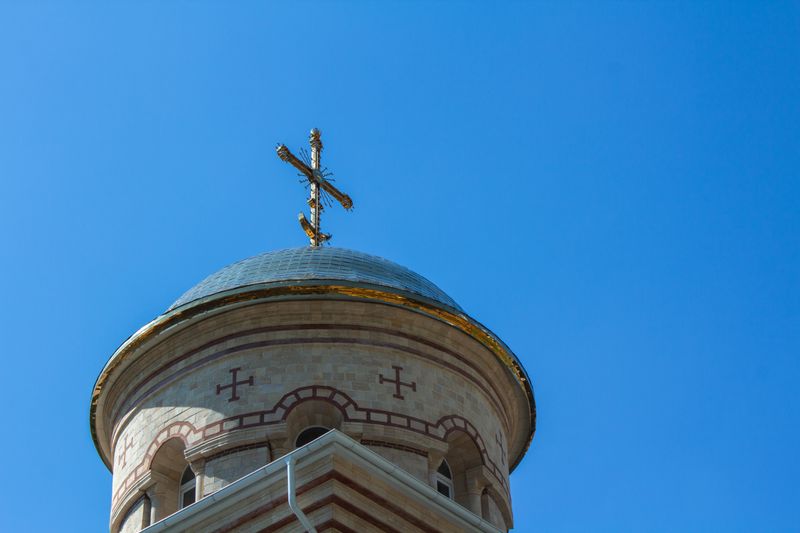Turns out Orthodoxy is actually Important
For the past few years as my theology has changed, and grown a stronger conviction that orthodoxy (which, “has the double meaning of ‘right belief’ and ‘right worship'” Kallistos Ware) is essential to the Christian Faith. While that may scare some people let me try to assure you by saying I think orthodoxy while important actually involves only four doctrines. In other words, what makes you orthodox is fairly minimal. If you believe in the Trinity, Full Deity and Full Humanity of Christ, Bodily Resurrection, and Virgin Birth, what I call the meat of the creeds then you’re historically orthodox. If your interested further check out this blog post I wrote http://misfitstheology.com/2019/07/13/what-is-historic-christianity/
But I digress. While my conviction has grown that orthodoxy is essential to historic Christianity, I have also wrestled with the place of orthopraxy (which means correct or right behavior). You see in my background “orthodoxy” was definitely the focus even if orthopraxy wasn’t explicitly denied. One of the problems with this focus on orthodoxy was that it was extremely detailed involving doctrines that only a very few Christians believed in, namely the doctrine of Inerrancy. Another problem with this focus was that generally if you didn’t conform to this orthodoxy you weren’t a Christian, in other words, your right beliefs saved you.
The Pendulum Always Swings to the Other Extreme
As I have moved away from that extremely narrow definition of orthodoxy, while also growing in my conviction of the importance of a broad orthodoxy, many around in reaction to that frankly bad definition of orthodoxy were leaning towards rejecting orthodoxy all together in favor of orthopraxy. But as radical as I seem to some, both liberals who think I’m too conservative, and conservatives who think I’m too liberal, I actually self identify as moderate. And this, what seemed in my mind an extreme move, away from orthodoxy in favor of orthopraxy alone, didn’t sit well with me. So I’ve explored what it means to hold both orthopraxy and orthodoxy as equally important. And as of now, I’ve come to the conclusion that not only are they equally essential for the Christian faith, but indeed are two sides of the same coin. They really cannot be separated. And they need not be.
Orthodoxy and Orthodopraxy: Two Sides of the Same Coin
The Trinity is usually acknowledged as a matter of orthodoxy, but loving your enemies often is not. My contention is that since God is Love, as a result of God being Trinitarian (maybe I’ll flesh this out in another blog post), to deny Love is to deny the Trinity. Thus to not live a life of loving behavior is heretical. Those who do not love their enemies are just as heretical as those who do not affirm the doctrine of the Trinity. Because they both reject the doctrine of the Trinity, just in different ways. One through their behavior and another through their mind.
The False Western Dicotomy of Body-Soul Dualism
But the problem with this is that in the Western World we have dichotomized the body from the mind. The Hebrew people had no such separation of the body from the mind. Their concept of the human person is found in the Hebrew word Nephesh. In the west we translate this word as Soul. But that’s not what it means. That’s a Greek idea that we westerners have inherited and thus read into the text as we translate it. Nephesh means your whole being, your very life. It does not categorize human beings into two components, body and soul. To the Hebrews your just one thing. By the way, this is why the bodily resurrection was so important in the early church as found in the creeds, “We believe in the [general] resurrection of the dead,” because you didn’t have a separate immortal soul that would live apart from your body. I think this is why modern western Christians have been able to separate the mind (orthodoxy) and body (orthopraxy). Of course, this is quite natural to westerners since we are categorical thinks rather than holistic thinkers. However, just because this is how we are culturally doesn’t mean we should change towards being more holistic thinkers. If we go back to the more holistic Hebrew understanding of anthropology I think we wouldn’t be able to separate orthodoxy and orthodoxy into two categories.
We’re All a Little Heretical
In summary, love is a matter of orthodoxy. None of us lives a life of love consistently. In that way were all heretical at times. But on a good day when we love our neighbor, and especially our enemy, we live in and according to a life-giving orthodoxy. Your behavior cannot be separated from what you actually believe intellectually. To consistently live a life of love, to enact Christlike behaviors means you believe in the Trinity who is love. To be rooted in the life of the Trinity means to live like the Trinity. And it means those who kill their enemies are heretical. And those who love their enemies are orthodox.
For more on this topic read my previous article: http://misfitstheology.com/2019/11/29/john-calvin-and-the-false-dichotomy%E2%80%8B-of-orthodoxy-and-orthopraxy/
Thanks to Everett Lees who rightly pointed out to me that Orthodoxy doubly means right belief and right worship. That is since the church’s worship is tied to its orthodoxy.
Photo Credit: alice-donovan-rouse


